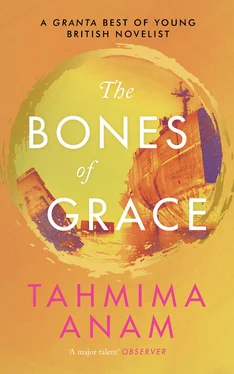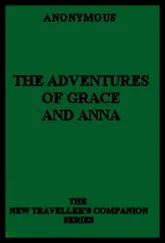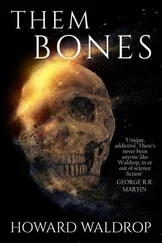In the evening we went to the apartment. Bettina was stirring something on the stove, and when we entered, she said hi, turned down the gas, and went into her room. Small signs of the party still remained — the faint whiff of whisky on the tabletops, the kitchen bin overflowing with blue-and-white plastic cups. I avoided looking at you or talking to you, finding myself wishing I hadn’t stripped the bed that morning. It was only 8 p.m. and there was the whole evening to fill. Wordlessly now I pulled a few ice cubes out of the freezer and poured us each a glass of water. You were scanning my almost-empty bookshelf, your hands in your pockets. I passed you a glass and we drank water in silence, your eyes still trained on the few remaining books. There were three copies of Anna Karenina I was waiting till the last minute to pack away. I wondered if I should offer you something to drink other than water, a glass of wine or something. Then Bettina came out of her room and asked if we wanted some vegetarian chilli. ‘Have we met before?’ she asked you.
‘I don’t know,’ you said.
‘Do you run the ArtSpace?’
‘Actually, yes.’
‘What’s the ArtSpace?’
‘It’s a Bacchanalian gathering of very talented people.’ Bettina explained. ‘Supposedly they are making art, but I’ve heard rumours.’
This conversation made me feel terrible. I opened the fridge and found the sangria. I pulled it out and drank it straight out of the jug, the lip of glass fat against my mouth. The two of you looked at me and I saw that you were the same, growing up with giant cartons of orange juice and Christmas carols in December. I told myself to calm down. Then I announced, while you and Bettina were discussing whether we should all walk over to Church Street for an ice-cream cone: ‘I don’t understand what’s happening.’
‘We’re ganging up against you.’
‘That’s what I thought.’
Outside, the air was muggy and you began to hum the song you had sung at Clementine’s funeral. At the Brattle there was a late showing of The Big Sleep , and you declared we must go. I tried to get Bettina to join us, but she said she had some reading to do and wanted to turn in early and headed home with a scoop of mint chocolate-chip. I don’t understand mint chocolate-chip, I said. It tastes like cold toothpaste. You asked me if all the things I had wondered about these last seven years in America were just coming out now. No, I said. Mint chocolate-chip is the only remaining mystery. The theatre was only half-full, and we found seats towards the back. As soon as I hit the velvet cushion, I regretted myself. I could see what was coming as the lights dimmed, a flashback to the moment at Sanders when we held hands in the dark — was it only the day before yesterday? — and now, two hours in a cool theatre with Lauren Bacall, who, Bettina had just informed me, was the sexiest woman ever to grace the screen, and here she was, her voice pitch dark, a rasp against wood. I was finished. ‘I need popcorn,’ I said, jumping out of my seat and bending forward as I excused myself past the knees of the other people in our row. In the lobby of the theatre I bought a drink, and as I was paying I realised I was still holding my ice-cream cone, and that the ice cream had dripped onto my wrist. I threw away the cone and licked my wrist, recalling Bogart’s long and narrow face, the hat pulled over his forehead. I re-entered the theatre, and when I sat down you didn’t look at me or say anything. I concentrated on the film and understood very little. At some point you whispered to me, with a small laugh, ‘You forgot the popcorn’, but I didn’t see the humour in it, I only wrapped my fingers around the armrest, as if to say, please don’t hold my hand. And you didn’t.
I dare myself to wait for you at the intersection, but you are never there. The triangular building juts into the street and the sidewalk beneath it is empty of you. Sometimes I walk to Porter Square and on the way I look down the street in the direction of your mother’s house. I think about ascending the four wooden steps and ringing her doorbell, but the distance between the thought and my finger on the buzzer is vast and unbreachable.
In the meantime, there is this. I spend my days deep in the belly of the new building, three storeys down where the corridors smell of nothing and the lights are brilliantly white. All the specimens have been transferred to vast metal drawers, and it is not unlike a hospital morgue. I’ve heard people complain, but I don’t mind: I like the idea of Diana coming back to the world in this neutral, unghosted space.
The fragments arrive at irregular intervals. Suzanne Williams has completed the first specimen, and I’m looking at Diana’s ankle — the double-pulley that connects her to our herbivore, land-dwelling mammals. It is perfectly intact. Suzanne is one of the best preparators in the country; for years I had only ever passed her in the hallways of the old building, a tiny woman with a grey ponytail and a fierce silence around her. Now she sits hunched beside me in the prep lab, her fingers delicately separating bone from matrix, the tap-tap-tap of her tools like a metronome.
I scan the bone and send the images to Bart and Jiminez. Often I stop and consider what I’ve been given, that Diana in my hand is a miracle, a testament to everything we are as humans — the scientists who uncover the past, the artists who imagine it, frail, delicate beings who seek immortality even as we realise we are mere pinpoints in the long chapter of our own history. At night, I turn my thoughts to our story. Piece by piece, I put it together. All the other voices clamour to be heard — my mother, and Anwar, and Mo, and the other life I might have had if things had taken a different turn. You don’t know Anwar, do you? Not yet. You are wondering who he is. I say his name but say nothing more. Perhaps I should tell you now (no, he is not my father). He is a man who revealed to me the entire history of my being, and, having done so, released me from all the things I believed I couldn’t do, wasn’t entitled to, because my past was a mystery. That is all I will say for now. Anwar will tell you the rest himself.
I went to Dera Bugti, even though until the last minute I was convinced something would happen to prevent the trip from materialising. Was I secretly hoping it would fall apart so I could stay in Cambridge with you and repeat our little rituals all summer long? Or was it, perhaps, a slight premonition that this was the start of a downward cascade, only a brief interlude on my way home, and home, too, was not going to be my ultimate destination, that other, final place more barren than anywhere I could have imagined?
I am rushing. Let us take it one miserable location at a time. Here I am now, on the bus to Dera Bugti. The open window whips my hair into gravity-defying tangles I will later spend hours righting. Eventually I will give up, and in a few weeks I will let it all turn into a giant, dust-cemented knot. On the seat beside me is Jiminez, who collected me at the airport. Jimmy and Professor Bartholomew Smith, the leader of our expedition, arrived early to set up camp. Jimmy looks more like a heavyweight boxing champion than a palaeontologist. He tells me straight away that he’s an ex-army man and that he’s done three tours in Afghanistan, as if he’s used to having to explain his shoulders, the pyramids of muscle climbing up his neck. The bus is only half-full and I am the only woman on board. I’m dressed in a long-sleeved tunic and a black veil that covers my head and most of my face. I also have to hold in my pee because there’s nowhere to go, and I’m too embarrassed to tell Jimmy that’s why I’m not drinking water. ‘Take a sip or the desert’ll suck you dry,’ he says. His voice is kinder than his bulk would have you imagine.
Читать дальше












